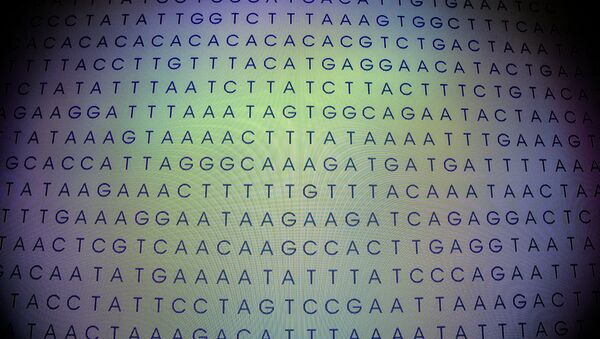The “precision medicine” model of treatment the initiative hopes to advance uses detailed knowledge of a patient’s genome, lifestyle and environment to tailor their health care.
A recent high-profile example of how this model is implemented is Angelina Jolie’s announcement she had undergone a double mastectomy after discovering she carried genetic markers that put her at particularly high risk for breast cancer.
— The White House (@WhiteHouse) January 30, 2015
In addition to providing information about potential risks, knowledge of a patient’s genome can inform how they may respond to different treatments for a particular disease as well.
The president called such healthcare tailoring “one of the greatest opportunities for new medical breakthroughs that we have ever seen.”
In order to fund the initiative, which Obama only briefly mentioned in his State of the Union address, the President is asking for $215 million in the 2016 budget to go primarily towards the National Institutes of Health (NIH) and other coordinating federal agencies.
Of the total expenditures, $10 million would go to the Food and Drug Administration (FDA) to develop regulatory mechanisms for the emerging field, and $5 million would go to the Office of the National Coordinator for Health Information Technology (ONC) to develop privacy protections for participants.
Since precision medicine requires the crunching of an enormous amount of data about people’s health and biology, the major goal of the initiative is to develop a group of 1 million American volunteers to provide genetic, medical, and environmental information to fuel a wide range of research projects.
This group would recruit new volunteers, whose DNA would be sequenced but also stitch together existing collections of information from both public and private projects so that it can be more easily shared among researchers.
— World Privacy Forum (@privacyforum) January 30, 2015
Responding to predictable concerns about the sensitivity of such personal data, the White House says the agencies involved will develop “rigorous privacy protections” for all that personal information in consultation with “patient groups, bioethicists, privacy, and civil liberties advocates, technologists, and other experts.”
The initiative will, to begin with, take particular aim at the interplay of genetic information and the battle against cancer, building on existing successes in the field in tailoring diagnosis and treatment.
$70 million will go to the National Cancer Institute (part of the NIH) and one of the aims will be “establishing a national ‘cancer knowledge network’ that will generate and share new knowledge to fuel scientific discovery and guide treatment decisions,” according to the White House statement.
Hope or Hype?
In addition to privacy concerns, others have voiced skepticism about the overall benefits of precision medicine for the average person.
Michael Joyner, of the Mayo Clinic noted that advances have been made for the treatments of some cancers and rare diseases like cystic fibrosis. “But for widespread diseases like diabetes, heart disease and most cancers, no clear genetic story has emerged for a vast majority of cases,” he wrote in an opinion piece in the New York Times.
One of the major public health issues of the day — related to both diabetes and heart disease — is the obesity epidemic, but Joyner is skeptical about the ability of genomic research to shed light that either, and points to lifestyle as a more helpful focus.
“Ultimately, we almost certainly have more control over how much we exercise, eat, drink and smoke than we do over our genomes.”




